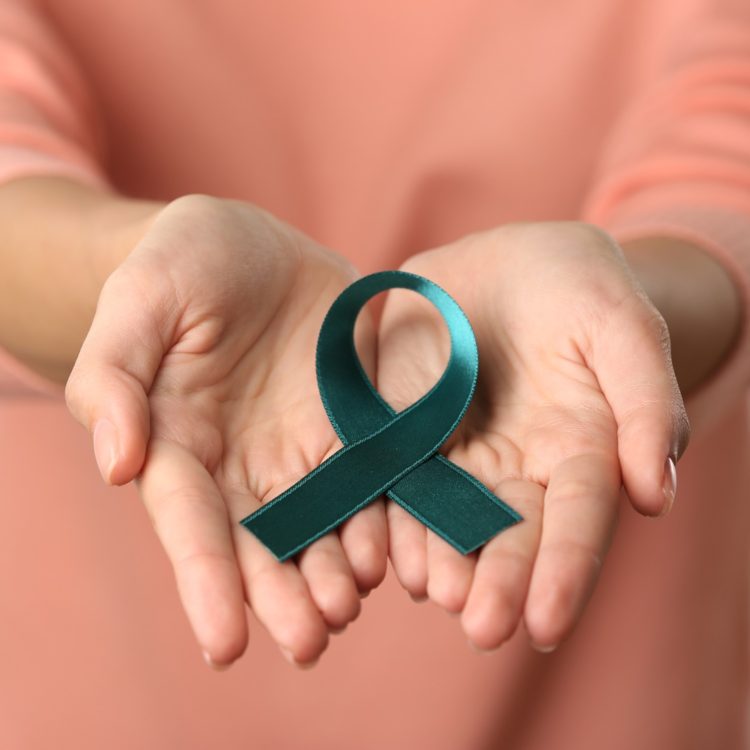What is Ovarian Cancer?
- Ovarian cancer is a type of cancer that begins in the ovaries and affects every 1 in 74 women
- Ovarian cancer remains the most deadly gynecologic malignancy in the United States.
What are the Symptoms of Ovarian Cancer?
Most patients with ovarian cancer are asymptomatic, with the cancer being discovered during ultrasonography or routine pelvic examination. Some cancer, however, may be associated with a range of symptoms, sometimes severe, including the following :
-
Discomfort or pain in the lower abdomen
-
Abnormal Vaginal Bleeding, particularly for those after menopause or discharge that is not normal for you
-
Cystic cancer rupture: characterized by sudden, sharp, unilateral pelvic pain; this can be associated with trauma, exercise, or coitus. Discomfort with intercourse
-
Pressure or pain in the pelvic area
-
Abdominal and Back Pain
-
Bloating
-
Feeling full quickly, having difficulty eating
-
Difficulty having bowel movements
-
Constipation
-
Need to defecate or urinate more frequently
-
Indigestion, heartburn, or early satiety
-
Painful and heavy periods
-
High Blood Pressure
-
Cervical motion tenderness
-
Weight loss
-
Enlarged lymph nodes (bumps) on the neck
-
Shortness of breath
Contact our office today if you believe you may be at risk and/or are experiencing some of the symptoms listed above. Our team of doctors will determine the course of treatment that is best suited for you.



What are the Risk Factors and Causes Ovarian Cancer?
The following are risk factors that may increase the risk of ovarian cancer:
-
Age: Ovarian cancer is rare in women that are under the age of 40 and most ovarian cancers develop after menopause. Half of all ovarian cancers are found in women over the age of 63.
-
Family History
-
Obesity and overweight
-
Have never given birth: Women who have their first full-term pregnancy after the age of 35 or who never carried a pregnancy to term have a higher risk of ovarian cancer.
-
Use of certain drugs
-
Taking hormone therapy after menopause
Q & A
A: There are several possibilities such as a side effect of a medication, STD, or spotting. However it should still be examined as it may be linked to a more serious condition such as Ovarian or Endometrial Cancer (Uterine Cancer).
A: Yes, a lack of physical activity and exercise puts you at a higher risk for ovarian cancer.
A: Pelvic pain resembling menstrual cramps is a common early symptom of ovarian cancer.
What are the Treatments for Ovarian Cancers?
Treatment for ovarian cancer usually involves a combination of surgery and chemotherapy.
-
- Surgery: People suffering from early-stage cancer will usually undergo surgery to remove the tumor.
- Chemotherapy: Uses special medicines to shrink or kill the cancer cells. The drugs can be pills you take or medicines given in your veins, or sometimes both.
- Hormone Therapy: Block or interfere with hormones in the body.
- Targeted Drug Therapy: Interferes with the ways cancer cells function and stops their growth.
At HEMATOLOGY & ONCOLOGY CARE we customize your Ovarian Cancer care so you can receive the most advanced, least invasive treatment with the fewest side effects. Planning of the treatment involves an interdisciplinary team of medical professionals. This usually implies a meeting of different specialists we have at HOC, called a multidisciplinary opinion. In this meeting, the planning of treatment will be discussed based on the relevant information summarized above.


